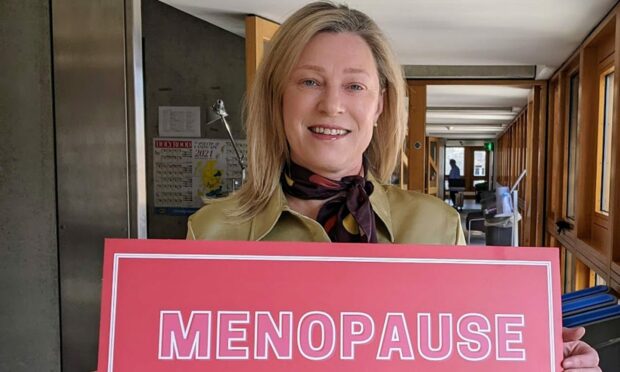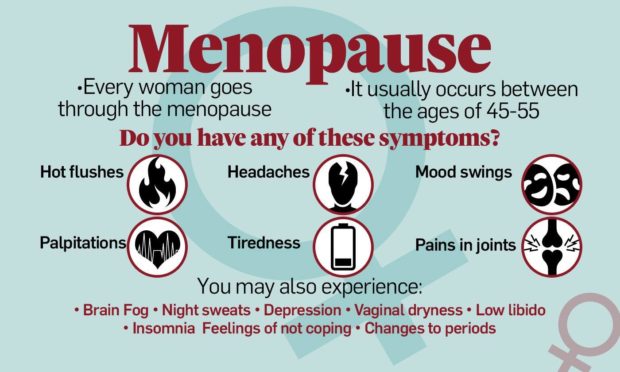It was one woman’s story of giving up work because she could not manage her menopause symptoms at work which made Gillian Martin first take notice.
The SNP politician had organised a “menopause cafe” in Oldmeldrum, Aberdeenshire, in 2019 for women in the area to share their experiences.
The woman – who was thought to work in healthcare – shared with the group that she could no longer work because her symptoms were so severe.
Now, the MSP for Aberdeenshire East has launched a Scottish-first survey to gather data from women across the country on the impact of menopause at work.
She’s not alone in trying to raise the profile of women’s experiences.
Rachel Weiss, who founded the menopause cafe movement in Perth in 2017, knows of women who have had to leave their jobs due to their symptoms.
She says managing menopause symptoms at work is a “huge issue” for women, especially with many now working until they are 67 or older.
These are women “in their prime”, she adds, who employers should want to keep hold of but stigma still exists around asking firms for additional support.
“Some people don’t want to tell people they are menopausal”, Ms Weiss says.
“Our society is not very positive about older women.”
Ms Martin’s survey was influenced by the success of an earlier one on barriers for oil and gas workers moving in to greener jobs.
“There’s not anything been done like this in Scotland and I hope I get a decent reach”, she says.
“What I’m really hoping is I can make a strong argument to sectors that if you don’t have a menopause policy and you don’t recognise that some of your female workforce might need certain flexibilities or adjustments, you could lose them.
“And you don’t want to lose women who have lots of experience.”
‘Culture change’
The MSP wants to bring about “culture change” from businesses to encourage them to support women through this time in their lives.
She has already contacted menopause “influencers” and women’s health groups to spread word of the survey.
It asks respondents questions such as round their experience of managing menopause symptoms at work, which sector they work in and what council area they live in.
The findings will be collated into a report and shared with major employers in the private sector, as well as public sector bodies and government.
Ms Martin, who is now a minister in the Scottish Government, once used a parliamentary agenda as a makeshift fan when she was experiencing a hot flush during a debate in the Scottish Parliament in 2019.
In a column for the Press and Journal last year, she opened up about her own experiences of menopause which she said changes “everything you thought you knew about your body”.
What is menopause?
Menopause is when your periods stop due to lower hormone levels. This usually happens between the ages of 45 and 55.
Symptoms include problems with sleep, memory and concentration as well as disruptive hot flashes, anxiety and depression.
Research has shown that women with at least one problematic menopausal symptom were 43% more likely to have left their jobs by the age of 55.
Healthcare group BUPA found almost 900,000 women in the UK had left their jobs because of these symptoms.
When asked what support businesses can offer, Ms Martin says she will take her lead from the responses that come back.
She adds: “You hear anecdotally people who may need flexible working, may need more regular breaks to deal with some of their menopause symptoms, even changes of uniform if it’s very uncomfortable or makes them too warm, or changes in their environment.”
Ms Weiss said it is important that managers talk to those employees who want support to find out what can personally help them.
But some suggested ways to help include ensuring frequent and easy access to toilets, temperature control and allowing flexible working patterns.
The survey – which is open for the next three months – can be accessed, here.




Conversation